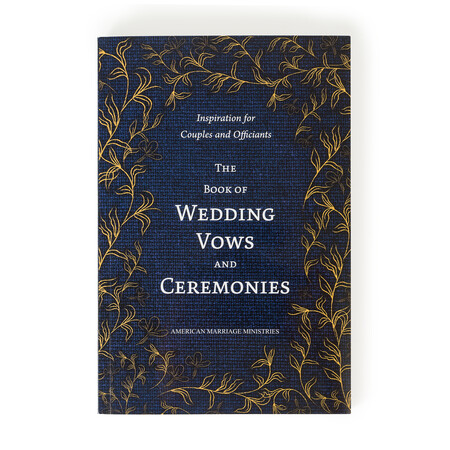How Do I Know the Wedding I Officiate Will be Legal?
We understand that you want to be 100% certain that the wedding you officiate is legally binding. The legal component of officiating a wedding ceremony is not well understood though it is a lot more straightforward than most people think.
If you strip away all the pomp and circumstance involved in the wedding celebration and leave only the legal components, you are left with only two factors that determine the legality of the marriage:
- Properly Completing any Required State Officiant Registration
- Properly Filing for, Completing, and Returning the Marriage License
Marriage is a unique cultural tradition that has been around for millennia. About 100 years ago State governments across the country started taking jurisdiction over marriages. Prior to this, marriages were administered by religious institutions and private communities. The government played no role in marriage.
Things have obviously changed and now marriage exists as a unique intersection between religious and government institutions. From the perspective of the government, marriage is simply a contract between two people, similar to any other contract such as a business partnership between two people.
It is helpful to think of marriage in this context to better understand the legal foundations for what is required of the officiant and couple. The officiant is the third party administering the contract, making sure that the parties committing to the contract are doing so voluntarily and with an understanding of their contractual obligations.
Observing State Officiant Registration Requirements
As marriage licenses are issued and filed with the State governments, the laws pertaining to who can officiate weddings and whether those individuals are required to register with a government office are up to the legislators of each state.
Most states do not have any laws requiring ministers to register prior to performing marriage. There are a few states that do and they are listed below:
- Arkansas
- Delaware
- Hawaii
- Louisiana
- Massachusetts
- Minnesota
- Nevada
- New Hampshire
- New York
- Ohio
- Puerto Rico
- Vermont
- Virginia
- Washington DC
- West Virginia
Observing Marriage License Requirements
It is the couple, not the officiants, responsibility to file for the marriage license. In most states it is the County Clerk located at the County Courthouse that issues the marriage license.
On the wedding day, before or after the ceremony, the couple must present the marriage license to the officiant and the officiant and couple must complete the marriage license in the presence of any required witnesses.
After the marriage license is completed it must be returned to its issuance office. Depending on the state this must be done by the couple or the officiant, in person or by mail. When the couple receives their marriage license, they will also receive instructions on how to properly return the completed license.
For more information on what office issues the marriage license, how much it costs, how to complete it, and more, check out our Handling the Marriage License Page.
More Officiating Wedding Ceremonies Related Questions
- Can I Perform Same-Sex Marriage?
- Do I Need to Register With the Government Before Performing a Marriage?
- How Do I Know the Wedding I Officiate Will be Legal?
- What Do I Say When Officiating the Wedding?
- Is There a Legally Prescribed Place to Officiate a Wedding?
- Can I Officiate Weddings in Other States?
- Can I Officiate Weddings in Another Country?
- Does a Wedding Ceremony Have Legal Wording Requirements?
- What is a Marriage Officiant?
- What Does an Officiant Say at a Wedding?
- How Old Do I Have to be to Officiate a Wedding Ceremony?
- Can I Legally Officiate Weddings as an AMM Minister?
- Can I Officiate Remote Weddings Over the Internet Without Being Present at the Ceremony?
- Can I Perform Weddings in North Carolina as an American Marriage Ministries Minister?
- I Am not a U.S. Citizen. Can I Officiate Weddings in the U.S.?


